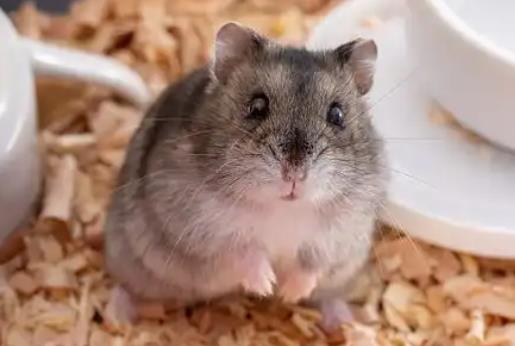Here are scientific dietary recommendations for dwarf hamsters, integrating their nutritional needs and health risk prevention:

1. Staple Food Proportions (Core Principles)
Grass Seeds as the Main Component
They should make up over 60% of the daily diet, such as ryegrass seeds, canary seeds, and cucumber seeds. These align with their natural feeding habits and are low in calories.
Grains as a Supplement
Accounting for 30%-40%, recommended options include rolled oats, wheat, and buckwheat. Corn should be given in small amounts (for teeth grinding).
Control Oily Seeds
Flaxseeds, hemp seeds, etc., should not exceed 25%-30% of the diet. For Roborovski hamsters, this should be even lower, at 20%.
2. Protein and Supplementary Foods
Animal Protein
They need 15 grams daily. Options include mealworms, boiled egg whites, or unsalted chicken. Avoid live insects to prevent parasite transmission.
Fruits and Vegetables: Cautions
Some cases show that fresh fruits and vegetables may cause diarrhea, so it’s advisable to feed them cautiously or avoid them entirely.
3. Health Risk Prevention
Diabetes Prevention
Choose sucrose-free formula feeds and add natural sugar-regulating ingredients like fenugreek seeds.
Obesity Management
The daily feeding amount should be 3-5 grams. Avoid overfeeding high-fat foods such as sunflower seeds and peanuts.
4. Brand Selection Suggestions
Prioritize professional hamster foods that contain coat-nourishing ingredients (e.g., flaxseeds), heat-reducing herbs (chrysanthemum, dandelion), and enhanced protein.
Notes
When switching foods, allow a 7-day transition period to avoid gastrointestinal stress.
Strictly prohibit feeding toxic foods such as chocolate, citrus fruits, and almonds.
